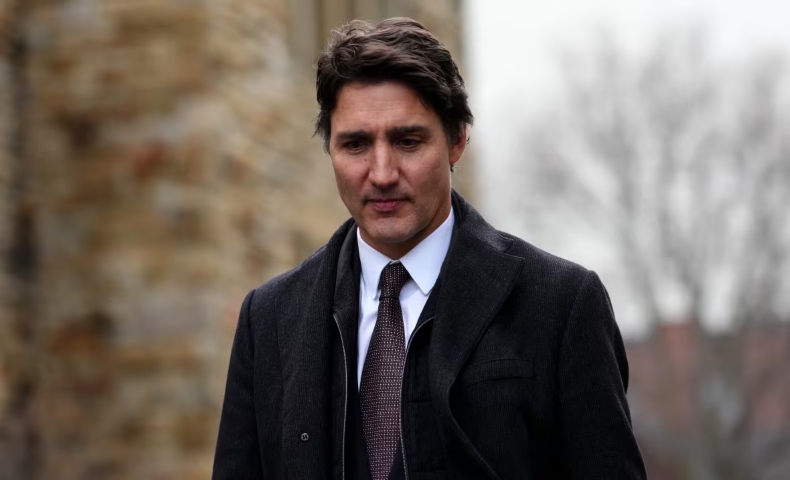
Prime Minister Justin Trudeau attended the state funeral of former NDP leader Ed Broadbent, held at the Carleton Dominion-Chalmers Centre in Ottawa on Sunday. Photo credit: Sean Kilpatrick/The Canadian Press.
In a solemn gathering in downtown Ottawa on Sunday, attendees bid farewell to the late Ed Broadbent, former leader of the New Democratic Party (NDP) and a prominent figure in Canadian politics. The state funeral, a rare tribute for an opposition leader, commemorated Broadbent's legacy as a "relentless force for good." The veteran politician, who led the NDP for 14 years spanning four elections, passed away on January 11 at the age of 87.
Addressing the assembled mourners, Manitoba Premier Wab Kinew praised Broadbent's enduring commitment to Indigenous rights, environmental justice, and his unwavering advocacy for blue-collar workers. Kinew emphasized the significance of Broadbent's politics of joy, recalling his ability to passionately pursue positive outcomes without resorting to personal attacks.
Federal NDP Leader Jagmeet Singh shared an emotional tribute, recounting conversations with Broadbent, who mentored him. Singh acknowledged the challenging task of carrying on Broadbent's vision for justice and fairness, expressing gratitude for the enduring impact of his mentor's life.
Before the ceremony at the Carleton Dominion-Chalmers Centre, Prime Minister Justin Trudeau lauded Broadbent as a "tireless campaigner for social justice." Trudeau credited Broadbent with significantly improving Canada through years of dedicated service in and out of politics.
Born in Oshawa, Ontario, Broadbent spent two decades in the House of Commons and continued to contribute to public policy through the Broadbent Institute, a policy think-tank he established. During his NDP leadership, Broadbent prioritized pocketbook issues and elevated the party to unprecedented poll standings, offering a viable alternative to the Liberal and Conservative parties.
The 1988 election marked a pinnacle for Broadbent, bringing the NDP to the brink of a breakthrough with 43 seats, making him the party's most successful leader until Jack Layton's "orange wave" in 2011. Broadbent faced off against four different prime ministers during his tenure, leaving an indelible mark on Canadian political history.
After stepping down in 1989, Broadbent returned to politics in 2004, winning the Ottawa Centre riding and serving as a respected elder statesman for the NDP. He played a crucial role in negotiating a formal coalition agreement between the Liberals and the NDP in 2008, although the talks were eventually halted.
The state funeral for Ed Broadbent, the second opposition leader in Canadian history to receive such an honour, was ordered by Prime Minister Justin Trudeau, who described Broadbent as a "much-loved national figure" and credited him with shaping the country's political landscape.
Flags on all Government of Canada buildings, including the Peace Tower, flew at half-mast from sunrise to sunset on Sunday, paying homage to a leader who left an enduring impact on Canadian politics.















